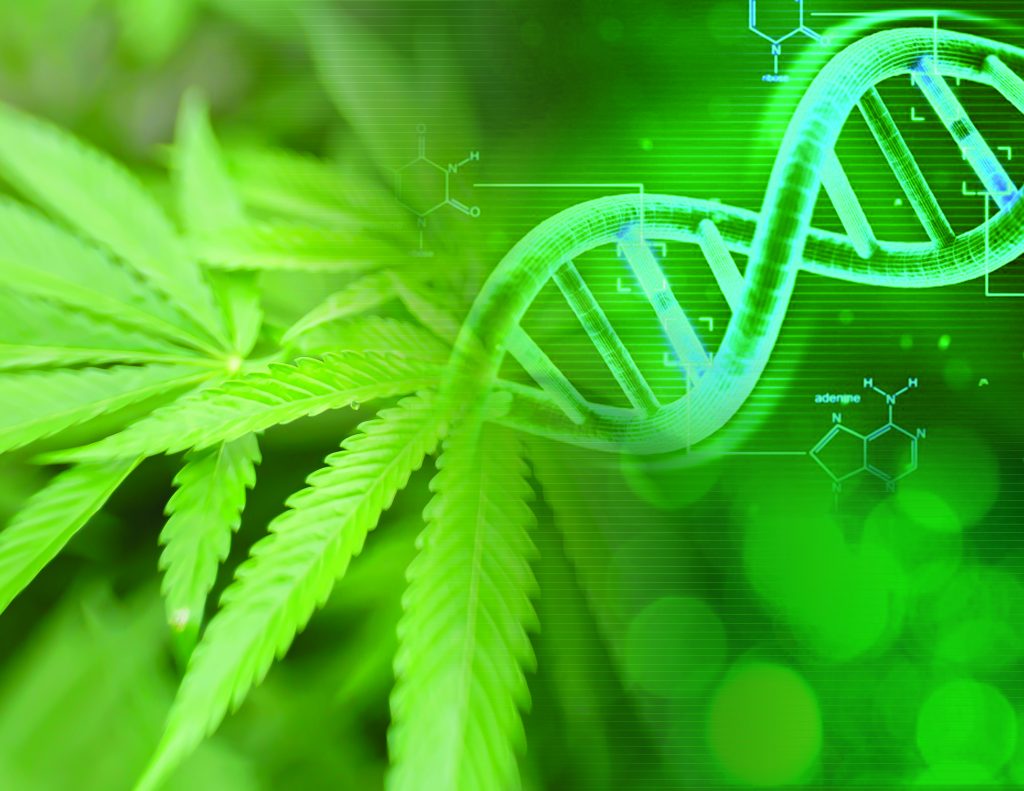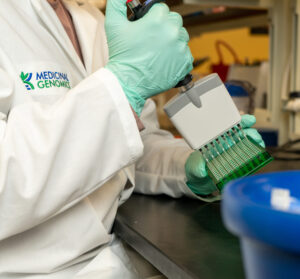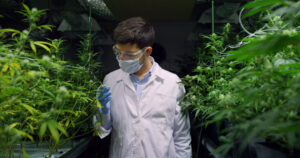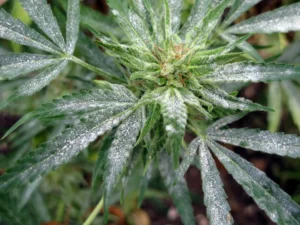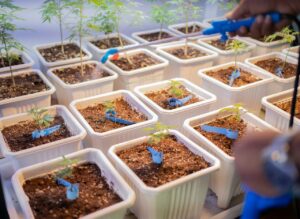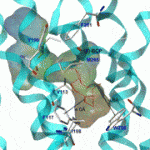 Abstract: The psychoactive cannabinoids from Cannabis sativa L. and the arachidonic acid-derived endocannabinoids are nonselective natural ligands for cannabinoid receptor type 1 (CB1) and CB2 receptors. Although the CB1 receptor is responsible for the psychomodulatory effects, activation of the CB2 receptor is a potential therapeutic strategy for the treatment of inflammation, pain, atherosclerosis, and osteoporosis. Here, we report that the widespread plant volatile (E)- -caryophyllene [(E)-BCP] selectively binds to the CB2 receptor (Ki 155 4 nM) and that it is a functional CB2 agonist. Intriguingly, (E)-BCP is a common constituent of the essential oils of numerous spice and food plants and a major component in Cannabis. Molecular docking simulations have identified a putative binding site of (E)-BCP in the CB2 receptor, showing ligand – stacking interactions with residues F117 and W258. Upon binding to the CB2 receptor, (E)-BCP inhibits adenylate cylcase, leads to intracellular calcium transients and weakly activates the mitogen-activated kinases Erk1/2 and p38 in primary human monocytes. (E)-BCP (500 nM) inhibits lipopolysaccharide (LPS)-induced proinflammatory cytokine expression in peripheral blood and attenuates LPS-stimulated Erk1/2 and JNK1/2 phosphorylation in monocytes. Furthermore, peroral (E)-BCP at 5 mg/kg strongly reduces the carrageenan-induced inflammatory response in wild-type mice but not in mice lacking CB2 receptors, providing evidence that this natural product exerts cannabimimetic effects in vivo. These results identify (E)-BCP as a functional nonpsychoactive CB2 receptor ligand in foodstuff and as a macrocyclic anti-inflammatory cannabinoid in Cannabis.
Abstract: The psychoactive cannabinoids from Cannabis sativa L. and the arachidonic acid-derived endocannabinoids are nonselective natural ligands for cannabinoid receptor type 1 (CB1) and CB2 receptors. Although the CB1 receptor is responsible for the psychomodulatory effects, activation of the CB2 receptor is a potential therapeutic strategy for the treatment of inflammation, pain, atherosclerosis, and osteoporosis. Here, we report that the widespread plant volatile (E)- -caryophyllene [(E)-BCP] selectively binds to the CB2 receptor (Ki 155 4 nM) and that it is a functional CB2 agonist. Intriguingly, (E)-BCP is a common constituent of the essential oils of numerous spice and food plants and a major component in Cannabis. Molecular docking simulations have identified a putative binding site of (E)-BCP in the CB2 receptor, showing ligand – stacking interactions with residues F117 and W258. Upon binding to the CB2 receptor, (E)-BCP inhibits adenylate cylcase, leads to intracellular calcium transients and weakly activates the mitogen-activated kinases Erk1/2 and p38 in primary human monocytes. (E)-BCP (500 nM) inhibits lipopolysaccharide (LPS)-induced proinflammatory cytokine expression in peripheral blood and attenuates LPS-stimulated Erk1/2 and JNK1/2 phosphorylation in monocytes. Furthermore, peroral (E)-BCP at 5 mg/kg strongly reduces the carrageenan-induced inflammatory response in wild-type mice but not in mice lacking CB2 receptors, providing evidence that this natural product exerts cannabimimetic effects in vivo. These results identify (E)-BCP as a functional nonpsychoactive CB2 receptor ligand in foodstuff and as a macrocyclic anti-inflammatory cannabinoid in Cannabis.
Have questions? Our experts are here for you
Our genetics-based cannabis testing and breeding technologies can help growers, dispensaries and labs grow cleaner, faster and healthier in every way. Because you’re not just delivering a product. You’re building a business. And a reputation.

